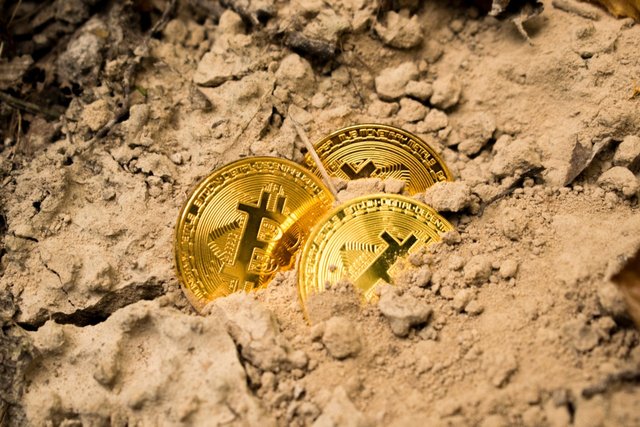
Cryptocurrencies like Bitcoin are currently the new standard for financial transactions in the online business. It was not so long ago that it was pretty "up to date" who did his banking via online banking. No long queues more dusty counters, or delayed transfers, because you depend on opening times of the house bank and always comes back into trouble, that they simply do not want to agree with their own hours.
Then came the year 2009 and under the pseudonym Satoshi Nakamoto someone asked the question, which since then the established financial system umhtreibt: Why actually still banks?
More and more We are losing faith in humans and rather than on machines. [...] Where we no longer feel we can trust people, we let computer code take over. [...] It was, after all, a carnival of human error to the misfeasance that inspired then invention of Bitcoin in 2009, namely the financial crisis. ( The New York Times )
What is Bitcoin - how a whitepaper changed the system
It has become apparent that Internet commerce is now almost entirely based on the fact that financial institutions serve as trusted third parties to process electronic payments. While this system works well enough for most transactions, it still suffers from the weaknesses of a model based on trust.This is how the white paper begins, with no less the goal than to challenge an established system: the financial system.
"Bitcoin: An electronic peer-to-peer payment system" is the title of 8 pages that have been hounding ever larger sections of our global society since their release. Here, Satoshi Nakamoto describes how he envisions a world without the need for banks, thus putting his reaction to the international financial crisis of 2008 on paper.
Disappointed by a system based on trust in institutions that he thinks have too often lost, an alternative is being developed here.
His proposal is an alternative based on mathematics and cryptography rather than interpersonal trust: a digital currency that is both electronically generated and managed. The underlying technology is the blockchain.
Thus, in January 2009, the Bitcoin network was created with the first 50 coins.
Is Bitcoin real money?
Bitcoin - the "digital coin" - is a digital currency. In addition, the name refers to the network as a digital booking system. Bitcoin introduced the first digital pendent to the classic fiat money, the money as a medium of exchange, which we know in the form of internationally different currencies and which has no intrinsic value.
Unlike fiat money, the value of Bitcoin is dependent on supply and demand and therefore extremely volatile.
So Bitcoin is not real money? No, not in the sense of a classical understanding of money. Although Bitcoin is often illustrated as a golden thaler, it is a purely digital currency that can be exchanged for other cryptocurrencies or euros.
Bitcoin transactions
The basis of BTC transactions is peer-to-peer technology. A third instance to mediate between two persons is no longer necessary.
We define an electronic coin (coin) as a chain of digital signatures. Each owner transfers the coin to the next by digitally signing a hash of the previous transaction and the next owner's public key and appending it to the end of the coin. The recipient of the payment can verify the signatures to verify the chain of owners. (Bitcoin white paper)Bitcoin transactions therefore have three core characteristics: they are fast, have low transaction costs, and are 100% transparent.
Each transaction is stored in the blockchain. The blockchain in this case is comparable to a decentralized cash book, or a digital bank statement in which each payment is transparently mapped and managed at all times.
Any public BTC address, similar to an account, can be viewed by anyone on the network. However, who owns this account is anonymous.
Once a transaction has been stored in the blockchain, a reverse transaction is no longer possible.
How do I get Bitcoin and how do I manage it?
Bitcoin can be purchased on appropriate online platforms and traded via exchanges , ie online file sharing. Can be exchanged for electronic money or common currencies. The fees for such transactions vary depending on the provider, but are usually at about 0.2-1% of the exchange amount.
Digital currencies are managed in a "digital wallet", so-called wallets. A wallet is the digital proof of how much Bitcoin or other cryptocurrencies a person owns.
Where can I copy strategies from professional traders and invest safely in Bitcoin?
The first way into the world of cryptos is usually the hardest. If you want to enrich your portfolio with Cryptos like Bitcoin (BTC) in addition to stocks, it is worth keeping an eye on so-called brokers, where you do not have to worry about the custody of your assets. Especially the storage of Cryptos is a task that should not be underestimated. You also have the potential to benefit from the knowledge of other traders without prior experience .
Source of info cryptomonday.de.
Source
Copying/Pasting full or partial texts without adding anything original is frowned upon by the community. Repeated copy/paste posts could be considered spam. Spam is discouraged by the community, and may result in action from the cheetah bot.
More information and tips on sharing content.
If you believe this comment is in error, please contact us in #disputes on Discord
Downvoting a post can decrease pending rewards and make it less visible. Common reasons:
Submit
Whether BTC will overtake the fiat system remains to be seen. No matter what, its impact cannot be underestimated.
Downvoting a post can decrease pending rewards and make it less visible. Common reasons:
Submit